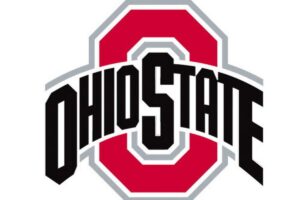
The Ohio State University is requiring its athletes to sign a two-page document titled, “Buckeye Acknowledgment and Pledge” prior to returning to school to participate in workouts. The “pledge,” which includes a section for a parent or guardian to sign if the athlete is under 18 years old, appears to have been provided to athletes to shield the university from exposure in the case that anyone contracts the coronavirus disease.
“I pledge to take responsibility for my own health and help stop the spread of the COVID-19,” states a portion of the first paragraph of the document. Further down it says, “I know that by engaging in campus activities, including attending classes, pursuing my education, living on campus, eating in the dining halls, attending activities, participating in sports and recreation, I may be exposed to COVID-19 and other infections. I also understand that despite all reasonable efforts by the university, I can still contract COVID-19 and other infections.”
The short document reads like a waiver of risks related to coronavirus. It indicates that the pledge is a condition of the athletes’ participation in Ohio State Athletics.
Yet, Ohio State is apparently taking the position that the pledge is not being viewed as a legal document despite the waiver sounding language and the requirement that the document be executed by a parent or guardian if the college athlete is under the age of majority. If there is no intention to view the document as being legally binding, then it is rather odd that the parental consent is made a part of the agreement.
Perhaps Ohio State is aware that, even if it took the position that the pledge was a legally binding document, it would be subject to a strong challenge to invalidate if litigated.
There exists precedent in the State of Ohio that requires a trier of fact to look at the complexity of the language within a waiver to determine if an ordinarily prudent and knowledgable person would have understood that there is a release from liability. The Buckeye Acknowledgement and Pledge document certainly pledges action on the part of athletes to do what they can to avoid contracting and spreading the coronavirus and it includes various understandings and acknowledgments about the disease, but it does not appear to expressly release Ohio State University from any claims that the athletes may have if they do contract the virus.
Furthermore, waivers have been deemed ineffective when they are contrary to public policy. Here, a school requiring a college athlete to sign a waiver related to coronavirus and limiting participation in athletics only to those who sign the document would seemingly be cause to strike down the waiver, if deemed to even be classified as such. The athletes, who are not even considered employees of the university or the athletic department, really have no choice in the situation. They would be told that they can sign and play or fail to sign and be forced to sit out from participating in a vital part of their pre-professional careers.
Interestingly, the pledge itself, even if not deemed to be a waiver, could cause legal issues in the case of an athlete refusing to execute same. At the end of the document it states that the pledge is a condition to participation in Ohio State Athletics. What happens if an athlete refuses to sign?
Darren Heitner is the founder of Heitner Legal. He is the author of How to Play the Game: What Every Sports Attorney Needs to Know, published by the American Bar Association, and is an adjunct professor at the University of Florida Levin College of Law. You can reach him by email at heitner@gmail.com and follow him on Twitter at @DarrenHeitner.

